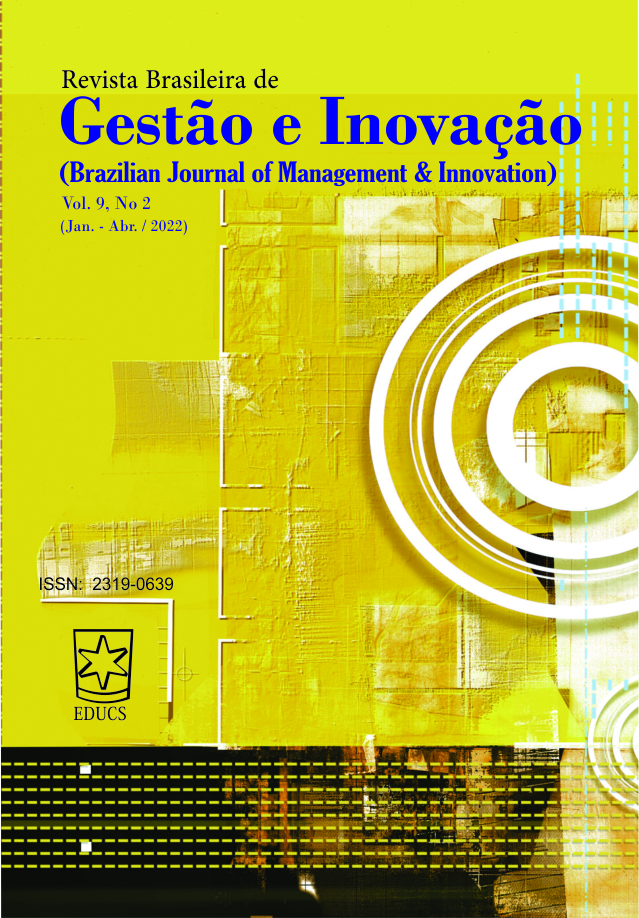INTEGRATION BETWEEN UNIVERSITY AND STARTUPS IN THE LIGHT OF THE SINGULARITY AND LIMITED RATIONALITY
DOI:
https://doi.org/10.18226/23190639.v9n2.02Keywords:
Limited rationality, Singularity, Startups, Learning by action, University entrepreneurshipAbstract
The article aims to answer the following research questions: What challenges does the academy face to improve the critical thinking of its entrepreneurial students using the action learning approach? And, what are the reactions and alternatives that students present to the singularity and limited rationality when solving a problem? To this end, a qualitative approach is used through participant observation in three case studies of companies participating in an interdisciplinary project developed at one of the best Brazilian federal university. From the cases, it is possible to perceive points such as: Prevalence of fear of failure by students; Initial research using an optimal and generic solution from the scientific literature or similar examples; Students' understanding that internal organization and learning management are more important than the technical solutions; The singularity of the startup problem, coupled with the limitation of facts and data, led the group to decide more on startup studies than generic bibliographic research on the problem or the benchmarking; and The solution validation process was carried out by the legitimacy of the entrepreneur, instead of statistical or economic validation.
Downloads
Published
How to Cite
Issue
Section
License
Copyright (c) 2021 Brazilian Journal of Management & Innovation

This work is licensed under a Creative Commons Attribution 4.0 International License.
The author must guarantee that:
- there is full consensus among all the coauthors in approving the final version of the document and its submission for publication.
- the work is original, and when the work and/or words from other people were used, they were properly acknowledged.
Plagiarism in all of its forms constitutes an unethical publication behavior and is unacceptable. Revista Brasileira de Gestão e Inovação has the right to use software or any other method of plagiarism detection.
All manuscripts submitted to RBGI - Revista Brasileira de Gestão e Inovação go through plagiarism and self-plagiarism identification. Plagiarism identified during the evaluation process will result in the filing of the submission. In case plagiarism is identified in a manuscript published in the journal, the Editor-in-Chief will conduct a preliminary investigation and, if necessary, will make a retraction.
This journal, following the recommendations of the Open Source movement, provides full open access to its content. By doing this, the authors keep all of their rights allowing Revista Brasileira de Gestão e Inovação to publish and make its articles available to the whole community.
RBGI - Revista Brasileira de Gestão e Inovação content is licensed under a Creative Commons Attribution 4.0 International License.
Any user has the right to:
- Share - copy, download, print or redistribute the material in any medium or format, linking to RBGI site.
- Adapt - remix, transform and build upon the material for any purpose, even commercially.
According to the following terms:
- Attribution - You must give appropriate credit, provide a link to the license, and indicate if changes were made. You may do so in any reasonable manner, but not in any way that suggests the licensor endorses you or your use.
- No additional restrictions - You may not apply legal terms or technological measures that legally restrict others from doing anything that the license permits.
#RBGI







